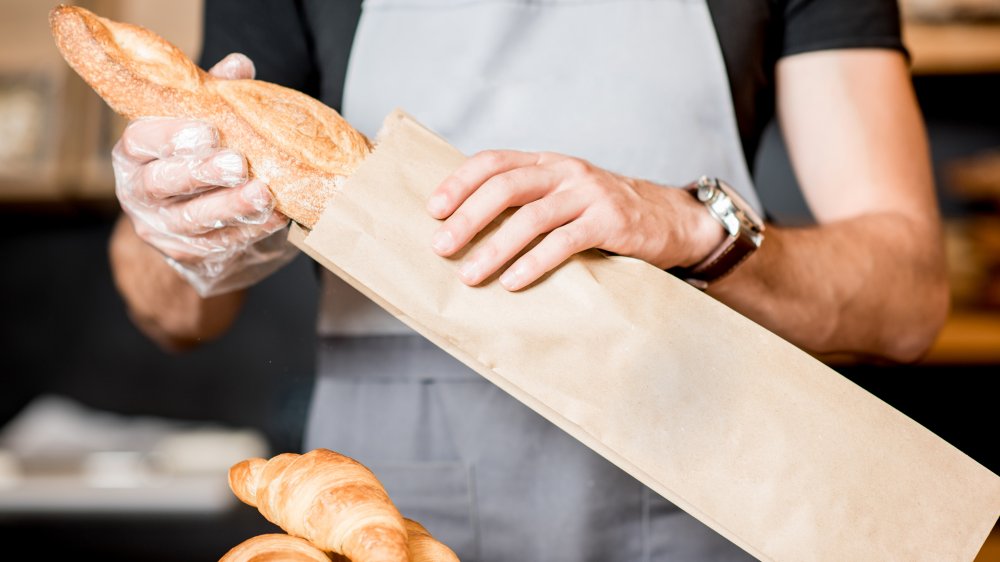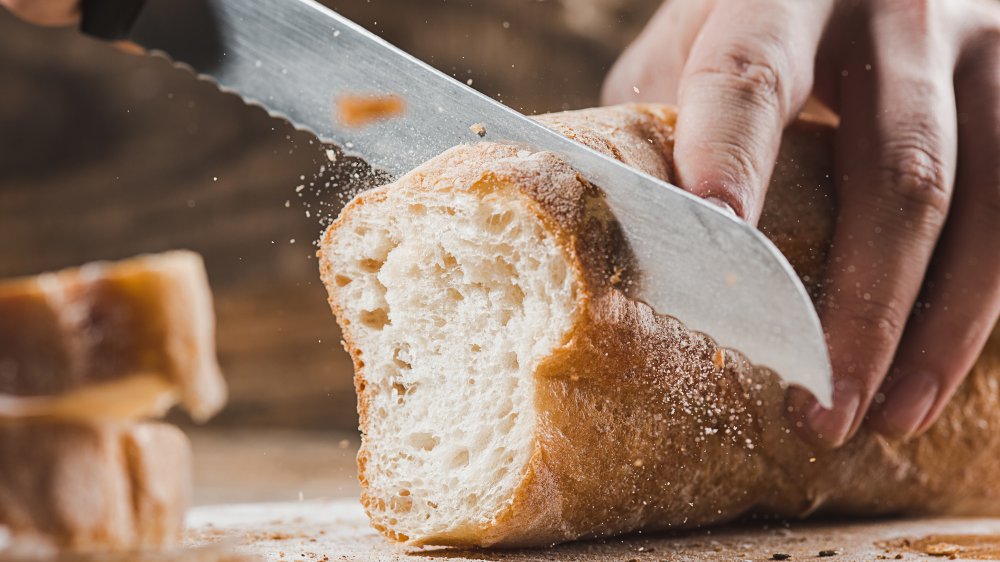The Real Reason Bakery Bread Comes In A Brown Paper Bag
When shopping for bread, you may have noticed that your crusty whole-grain batard from the bakery section comes sleeved in brown paper, while your everyday sandwich slices are packaged in plastic. What's the difference? "Paper or plastic," in this case, is not an environmental choice like in the check-out line. Rather, it has to do with freshness.
David Cummings, the Bakery Buyer at Fairway Market, told Reader's Digest, "[Storing the bread in paper bags] keeps the air on the bread allowing the crust to stay deliciously crisp." In contrast, plastic traps moisture. Placing fresh-baked bread in plastic can result in a mushy loaf. Madelyn Osten, a head baker at Sullivan Street Bakery, warns that plastic can also encourage mold growth (via Food & Wine).
Skeptics say that storing bread in paper actually makes the bread go stale — thereby forcing shoppers to buy bread more frequently (via Southern Living). Bakers maintain that fresh bread is just meant to be eaten fresh. Osten said, "A fresh loaf of bread is best eaten within two to three days. If you plan on devouring it right away, then keeping it in a paper bag on the counter is the move."
Freezing bread keeps it fresh
Part of the reason that fresh bread loses its luster within a few days of baking has to do with ingredients. Artisan loaves, like your rosemary polenta boule, roasted red pepper ciabatta, or classic French baguette, tend to be lean — meaning they don't contain added sugar or fat. According to Food 52, this shortens peak shelf life to a measly 48 hours. After that, your crunchy crust may start to resemble a brick. Which brings us back to plastic — if you're willing to settle for a softer slice, using an air-tight resealable bag will keep your bread toast-worthy for a little while longer.
If you find yourself stress-eating bread before it goes stale, you can always pop your bakery loaf in the freezer. Pulse your bread into breadcrumbs, cube into croutons, or slice up your loaf. For short-term storage of less than three weeks, simply package your bread in plastic wrap, foil, or freezer paper (according to The Spruce Eats). To extend the life of your loaf even longer, wrap it first in plastic wrap before adding a layer of foil or freezer paper. Now your bakery bread will keep for up to six months.

